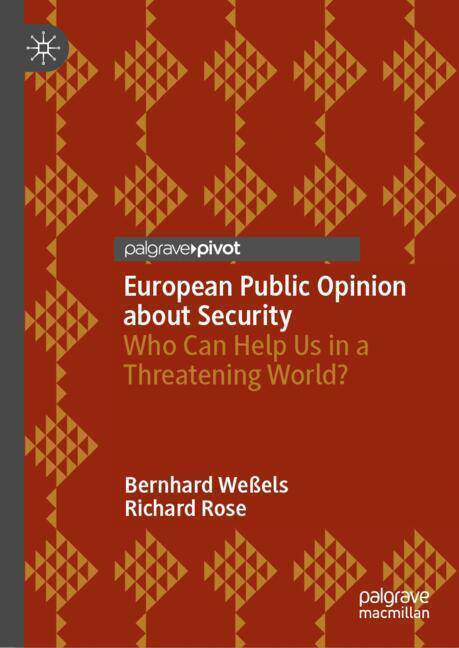
- Afhalen na 1 uur in een winkel met voorraad
- Gratis thuislevering in België vanaf € 30
- Ruim aanbod met 7 miljoen producten
- Afhalen na 1 uur in een winkel met voorraad
- Gratis thuislevering in België vanaf € 30
- Ruim aanbod met 7 miljoen producten
Zoeken
European Public Opinion about Security
Who Can Help Us in a Threatening World?
Bernhard Weßels, Richard Rose
€ 68,95
+ 137 punten
Omschrijving
This book's aim is to determine empirically whether Europeans see their multiple security needs best advanced by a consistent reliance on the EU's security policies or by differentiating allies according to their capacity to deal with different types of security threats, economic, military, and climate change. It uses original survey data to test whether people see their country facing multiple threats to their security. If they see a threat, do they want their national government to seek help from the EU, the United Nations or NATO or have their national government look after national security on its own? Given substantial differences in public opinion, we test whether this is due to individual differences in their political attitudes and social characteristics; national context; or differences in the capacity of multi-national institutions. The results have important implications for the public policies of national governments and the EU and for theories of European integration.
Specificaties
Betrokkenen
- Auteur(s):
- Uitgeverij:
Inhoud
- Aantal bladzijden:
- 88
- Taal:
- Engels
- Reeks:
Eigenschappen
- Productcode (EAN):
- 9783031862625
- Verschijningsdatum:
- 20/04/2025
- Uitvoering:
- Hardcover
- Formaat:
- Genaaid
- Afmetingen:
- 148 mm x 210 mm
- Gewicht:
- 285 g

Alleen bij Standaard Boekhandel
+ 137 punten op je klantenkaart van Standaard Boekhandel
Beoordelingen
We publiceren alleen reviews die voldoen aan de voorwaarden voor reviews. Bekijk onze voorwaarden voor reviews.








